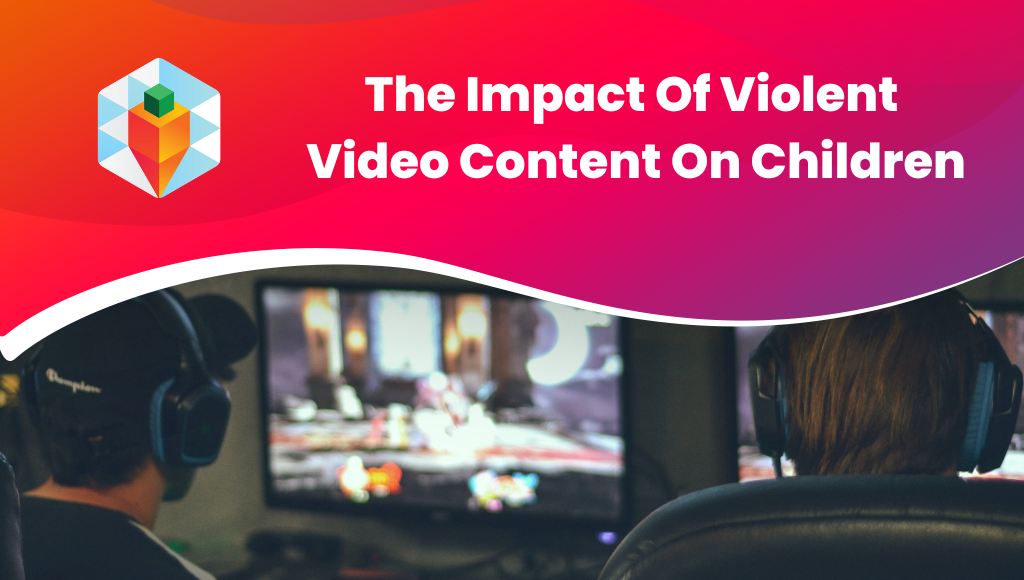


As a parent, you’ve probably stressed out worrying about the impact that violent video content can have on children.
But you probably know indifferent parents. Or maybe you even know someone who thinks violent video content has no effect. Does anyone know the truth? Does violent video content impact children?

Thankfully there are more than six decades of research to answer this question.
Adolescents spend approximately nine hours per day consuming entertainment media, including television, the Internet, and computer games.
Video games, in particular, have skyrocketed in popularity. Some teenagers report playing upwards of 40 hours per week.
This has led policymakers, parents, teachers, and researchers to question the effects of video games on players.
A majority of media effects scholars, pediatricians, and scientific panel reports* agree that there is substantial and compelling evidence linking violent media to aggressive and violent behavior.(Anderson CA, Andrighetto L, Bartholow BD, Bègue L, Boxer P. 2015).
Research suggesting that exposure to violence in media has no harmful effects is inconsistent (Bushman BJ, Huesmann LR. 2014).
According to a meta-analysis, playing violent video games increases aggressive thoughts, angry sentiments, physiological arousal, hostile appraisals, and aggressive behavior while lowering prosocial behavior like helping out others.

In addition to desensitizing viewers to violence, violent media can dull empathy for the suffering of others. Desensitization is a protective phenomenon that develops in response to challenging situations, such as doctors performing surgery and troops carrying out combat missions. Desensitization to media violence happens gradually and unconsciously due to frequent depictions of violence as essential, acceptable, and enjoyable (Brockmyer JF).
But exposure to violence in media does not solely affect aggressive behavior.
Recently researchers have started focusing more on violent video game play. The themes and mechanics in these games, such as shooting and killing, can be harmful, but an over saturation of media consumption can be traced to attention deficit problems. (Nikkelen SW, Valkenburg PM, Huizinga M, Bushman BJ. 2014).
A good start would be to be a wise shopper. Research and invest in video games for your children that are fun but promote education and skill development.

Other tips for parents and caregivers include:
● Know the games that your kids are playing.
● Don't allow access to violent video games.
● Limit time spent playing video games.
● Ensure no laptops or televisions are in bedrooms or other private areas.
● To prevent your children from watching violent programming, set passwords
on your TV.
● Utilize computer software to block websites with violent material.
● Talk to your kids about why playing violent video games is bad for them.
● At every chance, teach peaceful conflict resolution.
As a parent, it can be challenging to manage the impact of violent video content on your children. With Carrots&Cake you can ensure that your child is consuming helpful and educational content. Tap here to find out more!
*Effects of screen violence on increased aggressive behavior have been reviewed and affirmed by numerous major scientific organizations, including the American Academy of Pediatrics, the American Academy of Child and Adolescent Psychiatry, the American Medical Association, the American Psychiatric Association, the American Psychological Association, the US Surgeon General, the Society for the Psychological Study of Social Issues, and the International Society for Research on Aggression (Iowa State University. Statements on media violence effects by major scientific groups.







